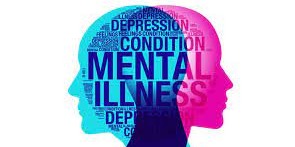Depression doesn’t have a face. It has millions of faces. In 2016 an estimated 16.2 million American adults had at least one major depressive episode. Of those, 4.8% were male and 8.5% female.
Why Do Men Experience Depression?
Stress
Everyone experiences stress, but men tend to handle it differently than women. According to the American Psychological Association, 9% of men do nothing to manage their stress. (Only 4% of women said the same.)
Even the source of stress differs between men and women. More men cite work as a major source of stress—76% compared to 65% of women. Women blame money and the economy as their biggest stressors—79% compared to 73% of men). Men may also feel stress from major life changes or losing loved ones, which can lead to depression.
Physical Illness
Depression isn’t always a standalone disease. Sometimes it occurs because of a serious medical condition. Illnesses linked to depression include:
- Cancer
- Heart disease
- Stroke
- HIV/AIDS
- Diabetes
- Parkinson’s
Genes
Several studies confirm that family history is a prominent risk factor for depressive symptoms. One of them looked at the role of stress and family history in lifetime depressive episodes
Why Do Women Experience Depression?
Statistics show that just by being female, you increase the risk of developing a depressive disorder. There are nearly twice as many women with depression as men. The theory is that certain biological and psychological conditions may make females naturally more prone to depression. These include:
Stress
Women are more likely than men to report having a great deal of stress. On a 10-point scale, 28% of women versus 20% of men scored their stress as an 8, 9, or 10.
Hormones
Women’s hormonal fluctuations are necessary for successful pregnancies, but they may also be the reason for higher depression rates
Physical Illness
Women, too, can feel the weight of a chronic illness or disability. The Illinois Department of Public Health says that “depression is more likely to occur along with certain illnesses, such as:
- Heart disease
- Cancer
- Parkinson’s disease
- Diabetes
- Alzheimer’s disease
- Hormonal disorders.”
Hormonal disorders, like hypothyroidism and polycystic ovary syndrome (PCOS), can cause:
- Thinning hair
- Weight gain
- Dry skin
- Acne
Symptoms of Depression
Most of the symptoms of depression are the same in men as they are in women. The main difference is emotional expression. Women show sadness and fatigue, which slow down their body movements. Men get riled up. They may seem calm one moment but are quick to snap and lash out. Men are also more likely to take risks, like gambling or buying expensive items, during depressive episodes.
Help is within reach—regardless of gender.
Written by Fernando Rodriguez
Avail provides resources to vetted care providers and professional.
Reach out for your well - being. Help is available/













